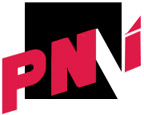HERB
COHEN What’s Next? What’s Next?
“Afghanistan is
just the beginning…..”
….George
W. Bush
The swift successes of our military campaign in Afghanistan
have brought victory in sight.
What still remains to be done are to defeat the remaining
Taliban forces and to provide appropriate justice for Osama bin
Laden, his top aides and what is left of al Qa’eda.
And this must be done quickly with maximum force to exploit
the momentum that now favors us on this fluid battlefield.
But beyond these obvious objectives we must be involved in the
creation of a stable post-Taliban government. Indeed, the
key to holding together the broad coalition that has been so
adroitly assembled, will be the perception of our “partners”
that we have the staying power to finish the task and provide
Afghanistan with a representative and stable government.
Yet even as we move to conclude these hostilities and establish an
enduring peace in Afghanistan, we must prepare for the next
military campaign or what our President referred to as Phase II of
the war.
What’s
next? Clearly the most logical choice is Iraq, as a
consensus is emerging that it’s high time to remove the beast of
Baghdad from power and destroy his weapons of mass destruction.
We already have sufficient evidence of Iraq’s support of
terrorism, such as its training of other Arabs at Salmon Pak on
how to skyjack planes. We know of meetings between Iraqi
intelligence operatives and terrorists, particularly Mohamed Atta
the leader of the Kamikaze 19. In addition, we have proof
that Saddam tried to assassinate the 41st President of the United
States in Kuwait in the spring of 1993.
The
“casus belli” or legal rational for going to war against Iraq
is that since 1997 when they evicted U.N. inspectors, they have
been in violation of a Security Council resolution. At the
same time, satellite photos and intelligence reports show that
they have continued to develop chemical and biological weapons.
Doubtlessly, Saddam and his Baath political regime pose a direct
and unacceptable threat to the region and the United States
directly.
In the past during the cold war, deterrence via the threat of
massive retaliation was effective but September 11th has changed
everything. Today, Saddam can covertly and deniably transfer
weapons and expertise to terrorists who will do his bidding. Truly
this is the same “evildoer” who has used chemical weapons
against both Iran and his own people and who came perilously close
to having nuclear weapons before he miscalculated the reaction to
his aggression against Kuwait.
Unfortunately the passage of time has not subdued Saddam or
weakened his position. Instead, he has used the misery he
imposes on his own people to generate sympathy for Iraq’s
plight. Likewise, illegal oil sales have furthered his
capacity to develop weapons of mass destruction and fund
international terrorism.
Of course, the preferable option would be to have the return of
the U.N. Inspectors, with the authority to locate and destroy
Saddam’s weapons. But squabbling in the Security Council
over the make-up and authority of the new inspection team will
last months. Not to mention the desires of France and Russia
to satisfy Iraq’s demands that the composition of the team and
its duration be acceptable to Saddam. Naturally, such
conditions are unacceptable to us. Because of the length of
time Iraq has had to work on their weapons in private, we must
demand unfettered and unconditional access. Currently the
reality is that Saddam will not agree, so we must begin our
preparations to put him in the crosshairs.
However, the military challenges we will face in Iraq are more
formidable than anything we experienced in Afghanistan.
First of all, the Iraqi National Congress, the main opposition
group has no combat forces comparable to the Northern Alliance.
Second, Hussein’s army is sizable and equipped with modern
weapons. Third, although air power is essential, to topple
Saddam we may have to take Baghdad and this will require vast
numbers of ground forces and the time and logistics to put them in
place. Finally, once this evil dictator realizes we are
definitely coming, he can be expected to use whatever weapons he
has against Israel and even his Arab neighbors.
Therefore what the United States should do now is intensify our
activities to energize Iraqi opposition. This means not just
those living outside the country but the Kurds in the north, the
Shias in the south and the rest of Saddam’s enemies within.
Many of these dissidents took up arms against Baghdad in 1991 only
to be abandoned by the Allied Coalition. This time when we
enlist them in the struggle we must guarantee that we will remain
engaged until Saddam is removed, his weapons of mass destruction
are destroyed and a new representative government is in place.
Simultaneously while engaged in these efforts and the deployment
of our ground forces in the Middle East, we should ratchet up the
pressure on Saddam. Using our closer relationship with
Russia and China, we must insist that Hussein immediately permit
United Nations unlimited and unconditional inspections for the
purpose of finding and destroying his weapon stockpiles.
When he refuses or stalls, the knowledge of our military
preparations and contacts with Iraqi dissidents, may induce Russia
and China to go along with harsher and more sustainable U.N.
sanctions.
During
the interlude between the achievement of our objectives in
Afghanistan and the establishment of sufficient ground forces to
move against Iraq, America should put maximum diplomatic pressure
on Syria and Lebanon. Our purpose is to have these countries
expel known terrorists ( Imad Mughviyeh, responsible for the
blowing-up the Marine Barracks in Beirut in October 1993) and to
freeze the bank accounts of individuals and organizations linked
to terrorism. As a result of our exercise of military might
in Afghanistan and the continuing build-up of forces, they will
become quite amenable to granting our requests. After all,
in the fragile states that comprise Arabdom, power begrudgingly
produces fear and ultimately respect.
Eventually
when we move against Iraq our most crucial ally will be Turkey who
will not want to see the country fragmented at the conclusion of
hostilities. From their perspective, a separate Kurdistan
might exert a gravitational pull on Turkey’s Kurds. So
naturally this must be taken into consideration.
Finally,
when we strike Baghdad our attack must be from the outset, swift,
savage, unrelenting and decisive. We must avoid
half-measures, destroying the Iraqi regime branch and root.
Right now it may look impressive to an outsider, especially to
some of its neighbors, but surely it will collapse under the
weight of popular resentment and American military force.
 …..HERB
COHEN …..HERB
COHEN
|

![]()
![]()
